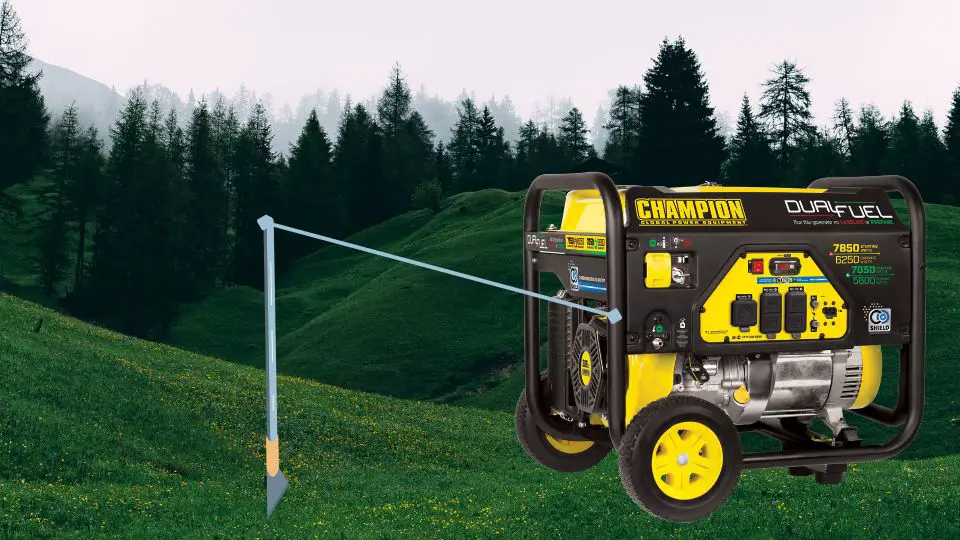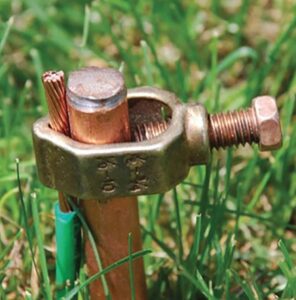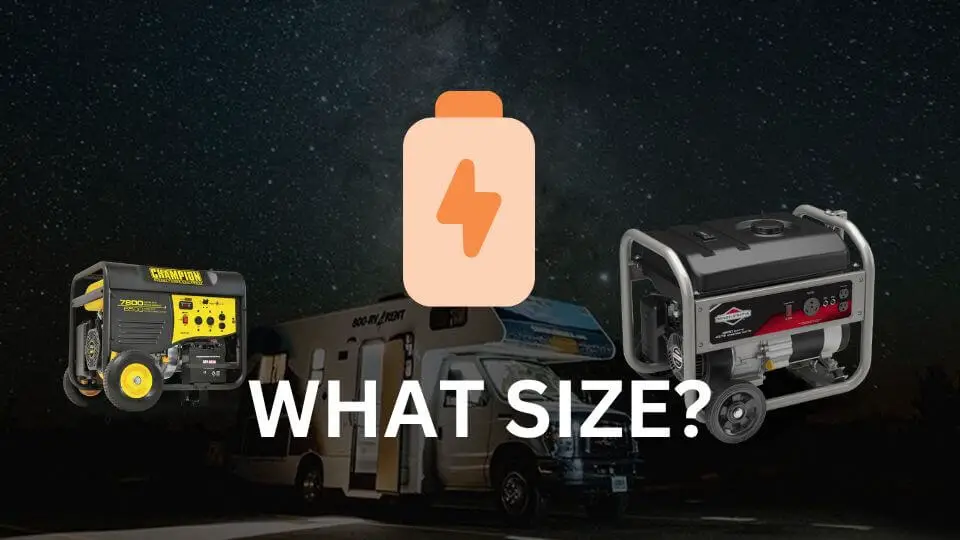This post may contain affiliate links. As an affiliate, we earn from qualifying purchases. We get commissions for purchases made through links in this post.
Safety first is a prominent collocation we hear all the time. When it comes to using a portable generator, you do really want to make sure to follow all the safety guidelines, especially, having your portable generator properly grounded.
Having said that, there is a lot of confusing information about the grounding you can find on the Internet. So you might still be wondering: does a portable generator really need to be grounded? In many situations, a generator must be grounded, while in others, you can get away with skipping this requirement.
This article will walk you through some details that will help you decide whether your generator needs grounding or not. We’ll also explain how to ground a generator using a ground rod, RV ground, or home ground.
When do you need to ground a portable generator?
The first and main criterion that you must find out before even starting to think about grounding is whether you’re using a portable generator to provide backup power to your home or supply your RV. If this is the case, the next step is getting more details about your home or RV’s wiring and the type of transfer switch.
It is quite rare but in some houses, you may find a transfer switch that changes neutral on the main panel. If this type of switch is installed in your home, then you must absolutely ground your portable generator when using it as a backup power for your home. In order to do it properly – check the section called “How to ground your portable generator” below.
If you’re planning to power up your RV from a portable generator, the same rule applies. Does your RV’s electrical panel have a floating neutral transfer switch? If the answer is yes – you must ground your portable generator separately as long as it is powering up the RV.
Why is grounding your generator important?
You may be wondering why you need to think about portable generator grounding at all. The answer is it’s actually quite important for your safety.
Grounding refers to the process of connecting an electrical source to the ground. In case too much electricity is coursing through the wires, grounding makes sure the excess will head all the way to the earth, therefore protecting you and your electrical devices.
If there is no grounding system in place, the electricity will continue coursing through the generator or any appliances connected to it. This can cause material damage when a power surge damages whatever is plugged into the generator.
It can also harm you or your family. If you touch a generator or appliance that is not grounded and is experiencing an electrical surge, you will most likely get hit with an electrical shock. That’s because when electricity can’t go to the ground to complete its circuit, it will use your body as a conductor. The consequences of a shock are much more severe than just an unpleasant feeling and can cause lasting injury or can even be fatal.
When you don’t have to ground your portable generator?
In most cases, you don’t need to ground your generator at all. Especially, if you’re using a portable generator to power devices that are directly plugged into it or you are using an extension cord with a grounding prong – you are pretty much already using a grounded generator. Just make sure it has a bonded neutral (refer to the manual or check if a “bonded neutral” sticker is present on the generator’s frame).
The thing is, all trusted generator brands are doing their best to make your life easier. They have already put some work to make your generator’s frame serve as a ground rod. This is only the case when your generator is placed exactly on the ground. Not on the second floor and not on any kind of rack or a prop.
The second scenario when you don’t need and should not ground your generator is when using a generator with a floating neutral (or the one that had its bonding neutral wire disconnected) while powering your house or an RV. These generators connect to your RV or home ground, using the same neutral terminal already present in the receptacle. Just make sure the following 2 conditions are met:
- your generator has a floating neutral
- your home’s transfer switch is using a bonded neutral
There is only one way to know for certain if you should or should not ground your generator, and that’s by checking its manual, which will clearly explain the scenarios in which you need and don’t need to ground a specific portable generator.
How to ground your portable generator
If, after examining your generator, you realize that you need to ground it, the process isn’t that difficult. To get started, you will need a grounding rod, grounding wire, pliers, a wrench, and a mallet.
Here are the steps to ground your portable generator via the grounding rod:
- First, hammer in the grounding rod. For grounding a home powered by a generator, people recommend burying the rod about 8 ft long.
- Prepare the copper wire by stripping the insulation from about a foot off the end.
- Wrap the wire around the grounding rod using your pliers.
- Connect the other end of the copper wire to the grounding bolt in your generator.
- Make sure both ends of your grounding wire are firmly attached.
Do not forget that you must use an insulated wire and it must be thick enough (the same thickness as other wires connected to your generator).
Always turn off your generator before grounding it to avoid shocking yourself, carefully read the manual, and ask for the help of a professional if you are not sure about what you’re doing.
If you’re using your generator’s frame as a ground rod, you should not take additional actions. Just make sure you plug in your appliances directly into the generator, or if you are using an extension cord make sure it has a ground prog.
Grounding a generator in your house’s grounding system is also easy. Make sure you have your generator’s neutral put into a floating state (by disconnecting it from the ground if it was bonded to), and then just use a cord with a ground wire for connecting your portable generator to your home’s input receptacle.
Final thoughts
Most modern generators don’t require grounding because they either ground through the frame or your home’s/RV’s grounding wire. However, if you are powering your house with a floating neutral transfer switch that gets disconnected from the ground when switching to a portable generator, you must additionally ground it.
Make sure to always familiarize yourself with your generator’s owner’s manual. It is very important to know for sure if your generator needs or does not need to be grounded.





No longer portable if you need a separate grounding rod.